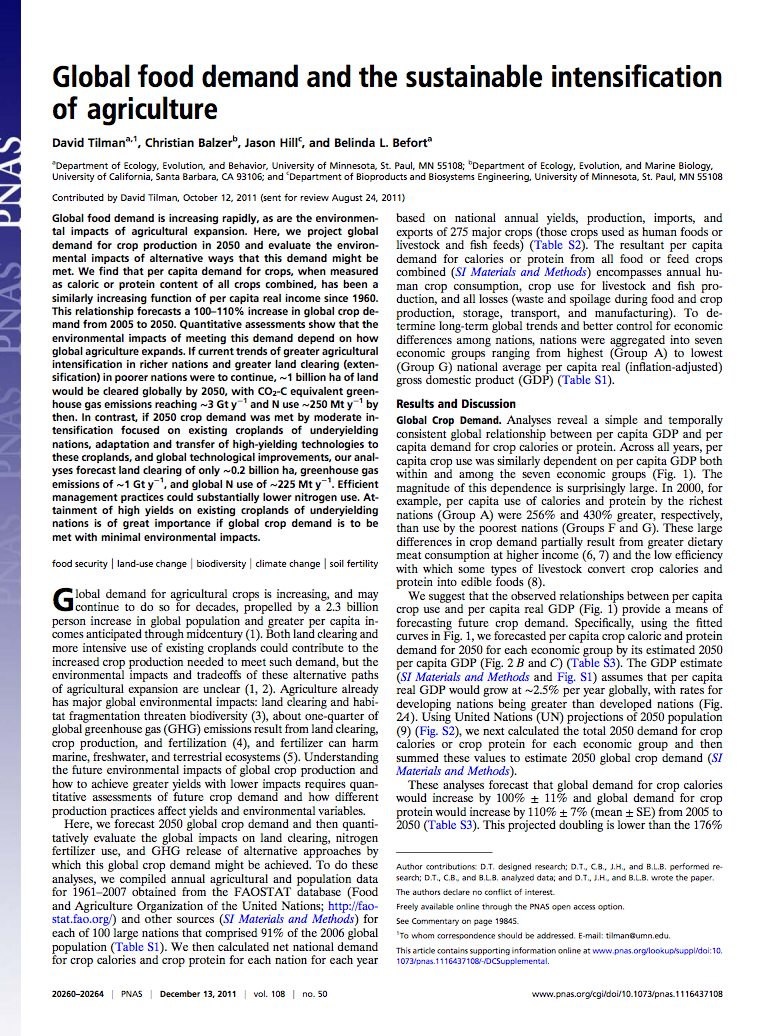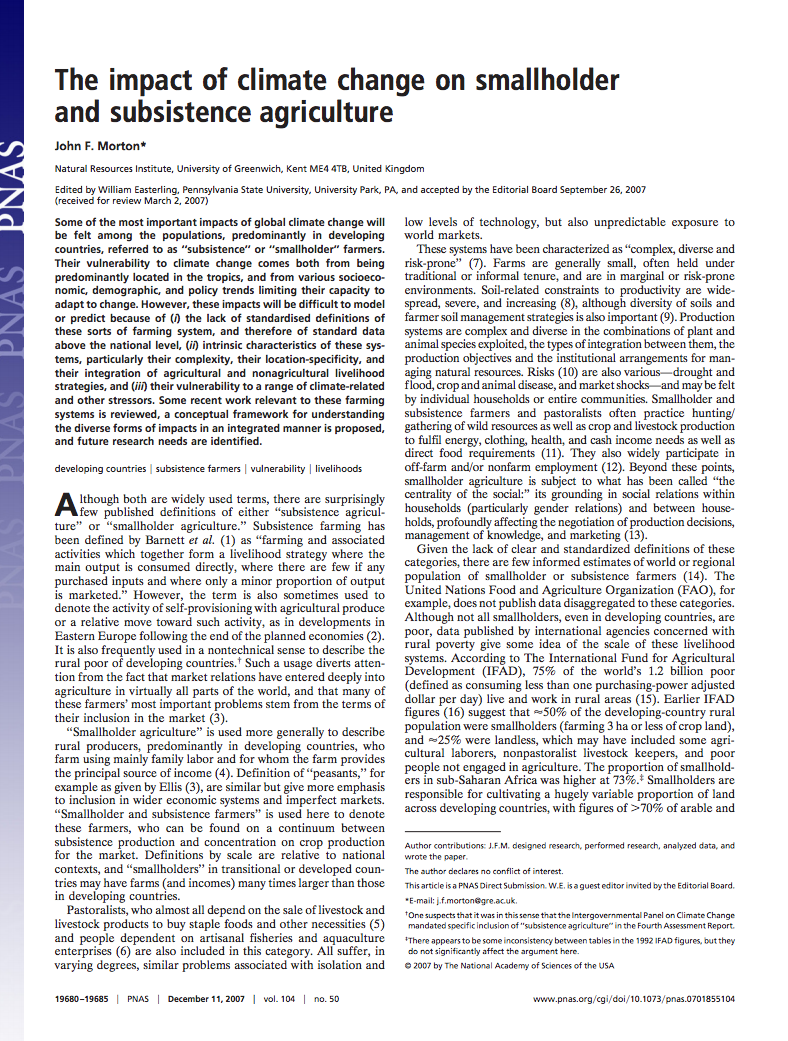PNAS is one of the world's most-cited and comprehensive multidisciplinary scientific journals, publishing more than 3,800 research papers annually. Established in 1914, PNAS publishes cutting-edge research, science news, Commentaries, Reviews, Perspectives, Colloquium Papers, and actions of the National Academy of Sciences.
The journal's content spans the biological, physical, and social sciences and is global in scope. Nearly half of all accepted papers come from authors outside the United States.
PNAS publishes only the highest quality scientific research. Every published paper is peer reviewed and has been approved for publication by an NAS member. Submissions are accepted from all researchers; authors do not need to have a connection to an NAS member to publish in PNAS.
Members:
Resources
Displaying 6 - 9 of 9Global food demand and the sustainable intensification of agriculture
Global food demand is increasing rapidly, as are the environmental impacts of agricultural expansion. Here, we project global demand for crop production in 2050 and evaluate the environmental impacts of alternative ways that this demand might be met. We find that per capita demand for crops, when measured as caloric or protein content of all crops combined, has been a similarly increasing function of per capita real income since 1960. This relationship forecasts a 100–110% increase in global crop demand from 2005 to 2050.
The impact of climate change on smallholder and subsistence agriculture
Some of the most important impacts of global climate change will be felt among the populations, predominantly in developing countries, referred to as ‘‘subsistence’’ or ‘‘smallholder’’ farmers. Their vulnerability to climate change comes both from being predominantly located in the tropics, and from various socioeconomic, demographic, and policy trends limiting their capacity to adapt to change.
Long-term changes in Serengeti-Mara wildebeest and land cover: pastoralism, population, or policies?
Declines in habitat and wildlife in semiarid African savannas arefrequently attributed to factors such as agropastoral population growth, livestock impacts, and subsistence cultivation.
INDUSTRIAL BELT TAKES SHAPE AROUND CAPITAL
...Sources say the industrial zones are creating another headache: forced relocations of villagers. The source says that farmers have been forced to give up their prized land in Mingaladon north of Rangoon to make way for Mitsui's industrial park. "There is no negotiation between the farmers and the government. The govenrment simply puts up a sign saying, 'Everybody must move by this date.' Everybody must obey it or else. Villages are silently angry but they don't dare protest." Adds another local resident, explaining the public mentality about reallocations, "We have to obey the king.





